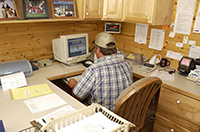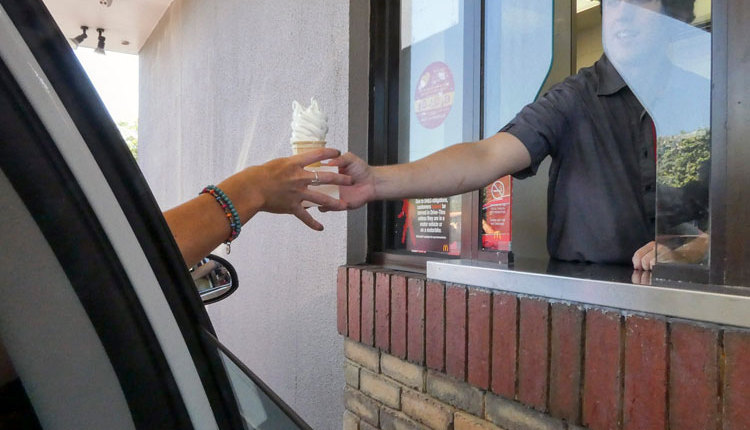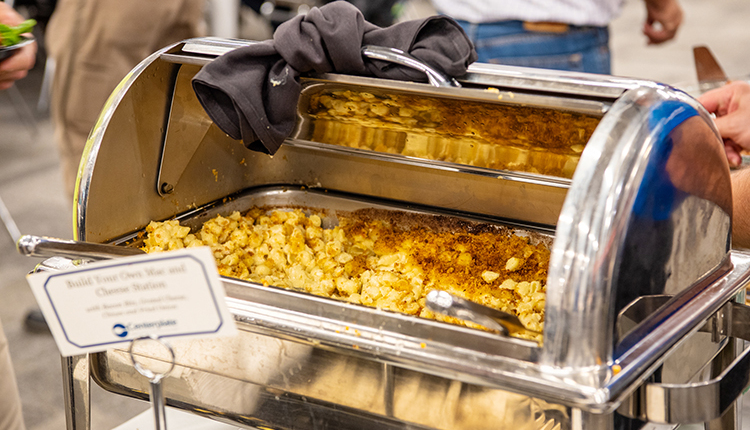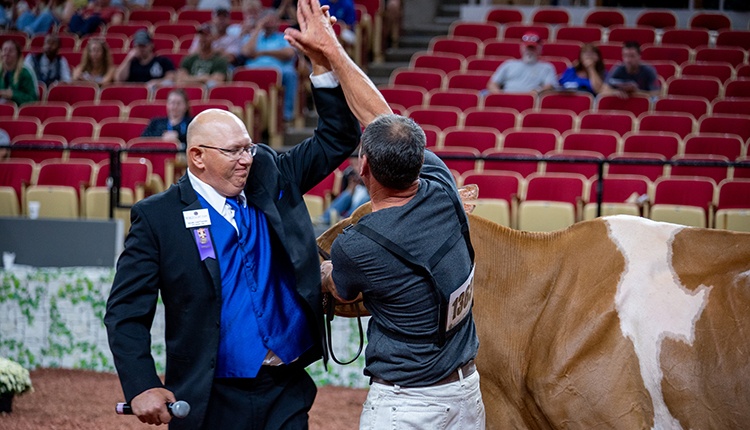Running a business has a lot to do with building and maintaining relationships, and for a farm, an extremely important relationship is the one with their lender.
The foundation of that relationship is numbers based. For lenders, a financial analysis is a major tool used in determining their ability to finance an operation's credit needs. "It's what we, as lenders, are going to base our decision on," explained Paul Dietmann, Emerging Markets Specialist with Badgerland Financial, during his presentation at a UW-Extension dairy modernization meeting.
A financial analysis is multi-faceted, and it goes beyond just dollars and cents. A lender will typically look at these "5 Cs of credit" when making loan considerations:
Character
Character is the first "C" Dietmann mentioned. This includes the actions you take to carry out the values, ethics and morals you believe in. "It's what you do when no one is looking," he said. It also includes your education, training and experience, along with your repayment history, reputation, and credit score.
 Capital
Capital
"This is your balance sheet," Dietmann said. "It is a snapshot of what you owe and own." This also measures your liquidity, or the cash and liquid assets you have available to meet obligations as they come due.
Also considered is your solvency, or your ability to pay all debts if the business was sold tomorrow. The higher the owner's share of the business, the better, he said. If you're a beginning farmer, owner equity should be about equal to your age, recommended Dietmann. For example, if you are 30 years old, you should own about 30 percent of the assets.
Capacity
Your capacity is your net income or profitability; this is what is left over when all expenses are covered. Measured by return of rate on farm assets (ROROA), this number should be higher than the interest rate on your loans. If it isn't, you are not making money, Dietmann said.
Collateral
Collateral is the animals, equipment or land you already own that can be used as a backup if you default on the loan. Sometimes, for a new producer without much equity or history, a lender may request a cosigner or guarantor for the loan, noted Dietmann.
Conditions
This includes the risk involved with the loan and the ability for the farm to pay it back, explained Dietmann. Can you afford to do the project? Have you built up your equity position to take on more debt? Will the project generate additional income?
What happens when the numbers don't work out? It does not mean that you will never be approved for a loan, but you may need to make some changes first. Dietmann advised producers to improve owner's equity by focusing on debt reduction.
If you're already farming, he encouraged producers to grow cash flow and improve efficiency factors and ratios by boosting production, lowering feed costs, or minimizing labor needs. "Fine tune the operation," he said. "Get better before getting bigger."

The author is an associate editor and covers animal health, dairy housing and equipment, and nutrient management. She grew up on a dairy farm near Plymouth, Wis., and previously served as a University of Wisconsin agricultural extension agent. She received a master's degree from North Carolina State University and a bachelor's from University of Wisconsin-Madison.
The foundation of that relationship is numbers based. For lenders, a financial analysis is a major tool used in determining their ability to finance an operation's credit needs. "It's what we, as lenders, are going to base our decision on," explained Paul Dietmann, Emerging Markets Specialist with Badgerland Financial, during his presentation at a UW-Extension dairy modernization meeting.
A financial analysis is multi-faceted, and it goes beyond just dollars and cents. A lender will typically look at these "5 Cs of credit" when making loan considerations:
Character
Character is the first "C" Dietmann mentioned. This includes the actions you take to carry out the values, ethics and morals you believe in. "It's what you do when no one is looking," he said. It also includes your education, training and experience, along with your repayment history, reputation, and credit score.
 Capital
Capital"This is your balance sheet," Dietmann said. "It is a snapshot of what you owe and own." This also measures your liquidity, or the cash and liquid assets you have available to meet obligations as they come due.
Also considered is your solvency, or your ability to pay all debts if the business was sold tomorrow. The higher the owner's share of the business, the better, he said. If you're a beginning farmer, owner equity should be about equal to your age, recommended Dietmann. For example, if you are 30 years old, you should own about 30 percent of the assets.
Capacity
Your capacity is your net income or profitability; this is what is left over when all expenses are covered. Measured by return of rate on farm assets (ROROA), this number should be higher than the interest rate on your loans. If it isn't, you are not making money, Dietmann said.
Collateral
Collateral is the animals, equipment or land you already own that can be used as a backup if you default on the loan. Sometimes, for a new producer without much equity or history, a lender may request a cosigner or guarantor for the loan, noted Dietmann.
Conditions
This includes the risk involved with the loan and the ability for the farm to pay it back, explained Dietmann. Can you afford to do the project? Have you built up your equity position to take on more debt? Will the project generate additional income?
What happens when the numbers don't work out? It does not mean that you will never be approved for a loan, but you may need to make some changes first. Dietmann advised producers to improve owner's equity by focusing on debt reduction.
If you're already farming, he encouraged producers to grow cash flow and improve efficiency factors and ratios by boosting production, lowering feed costs, or minimizing labor needs. "Fine tune the operation," he said. "Get better before getting bigger."

The author is an associate editor and covers animal health, dairy housing and equipment, and nutrient management. She grew up on a dairy farm near Plymouth, Wis., and previously served as a University of Wisconsin agricultural extension agent. She received a master's degree from North Carolina State University and a bachelor's from University of Wisconsin-Madison.








